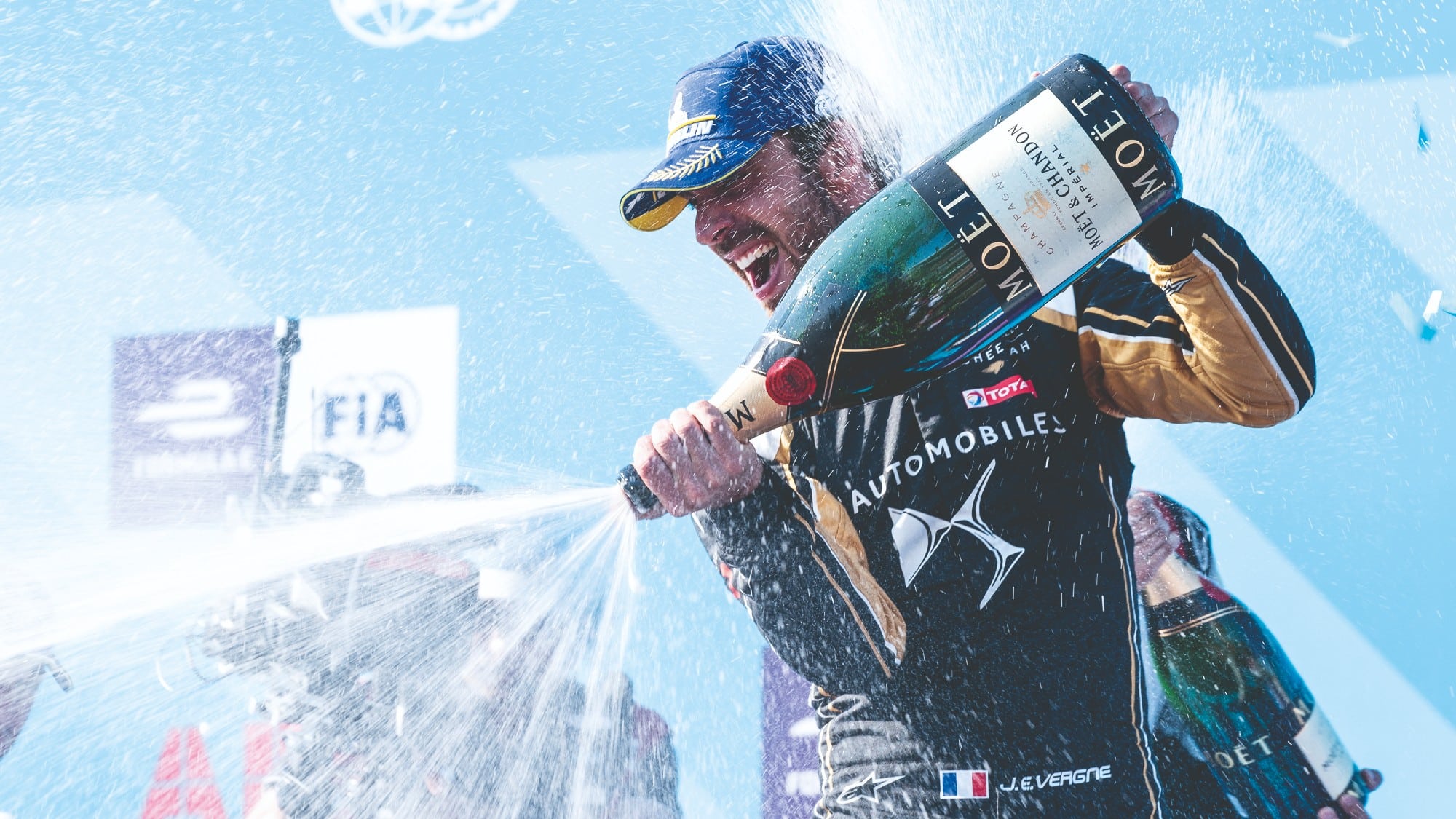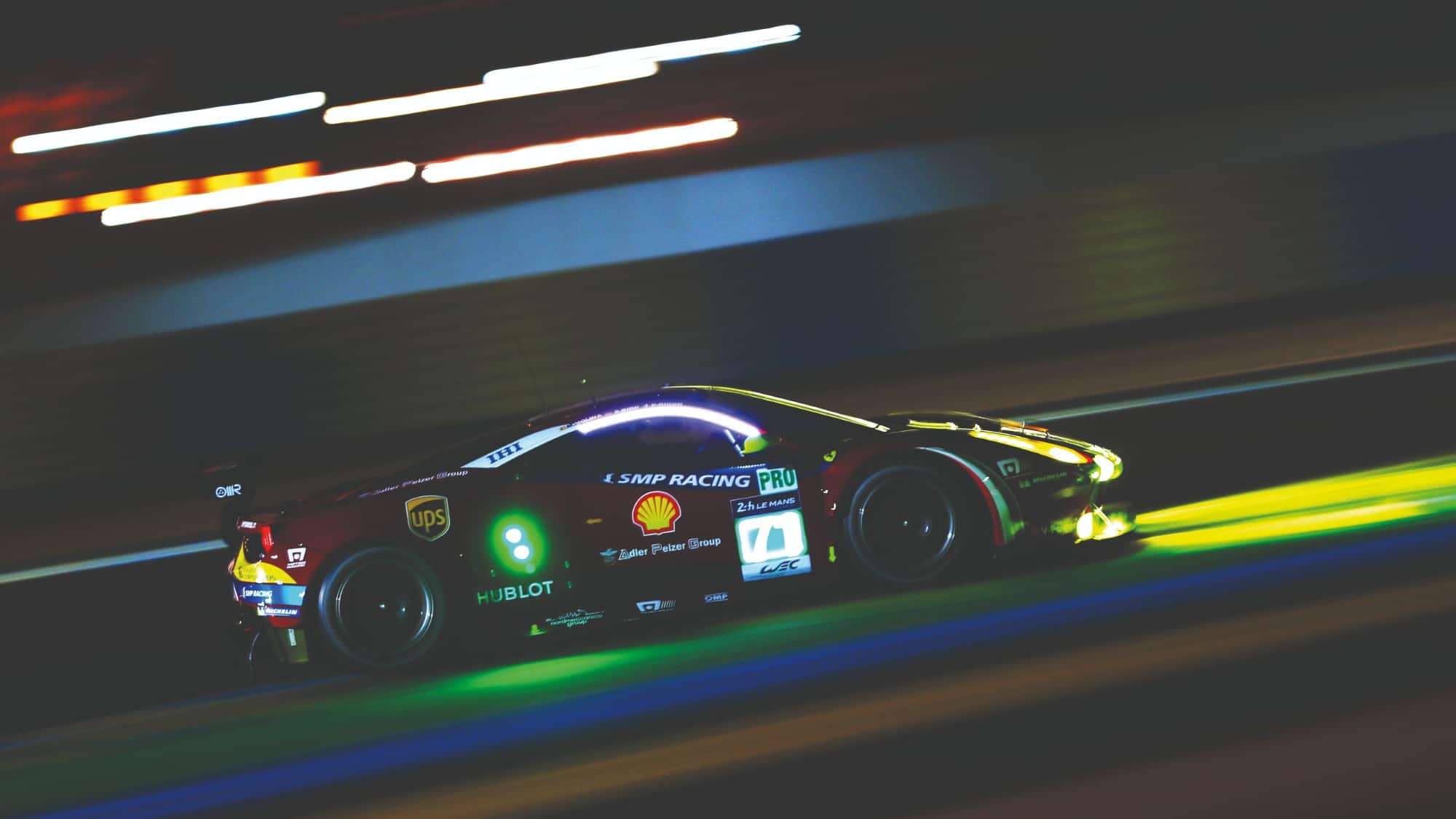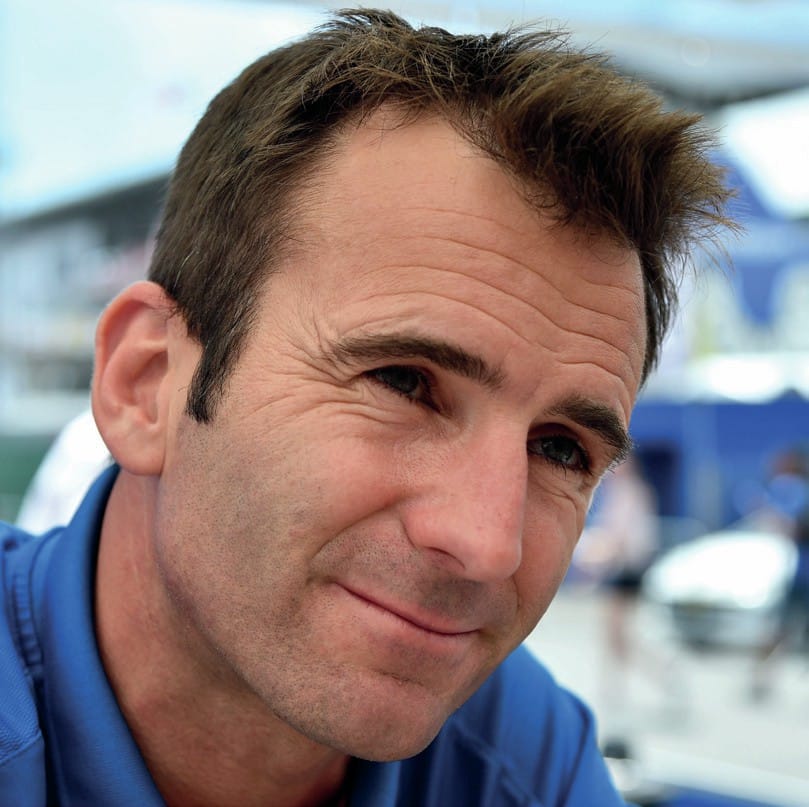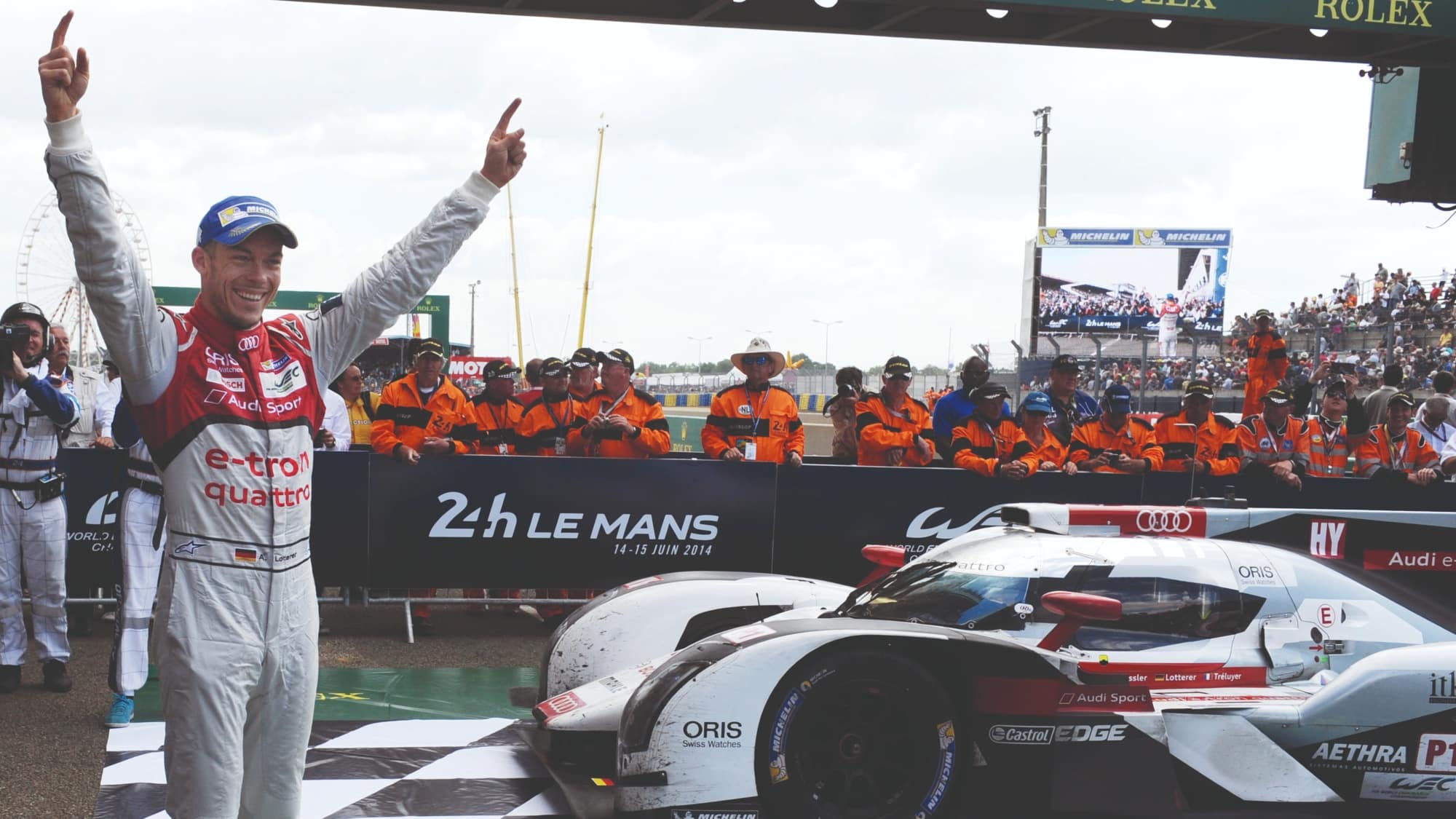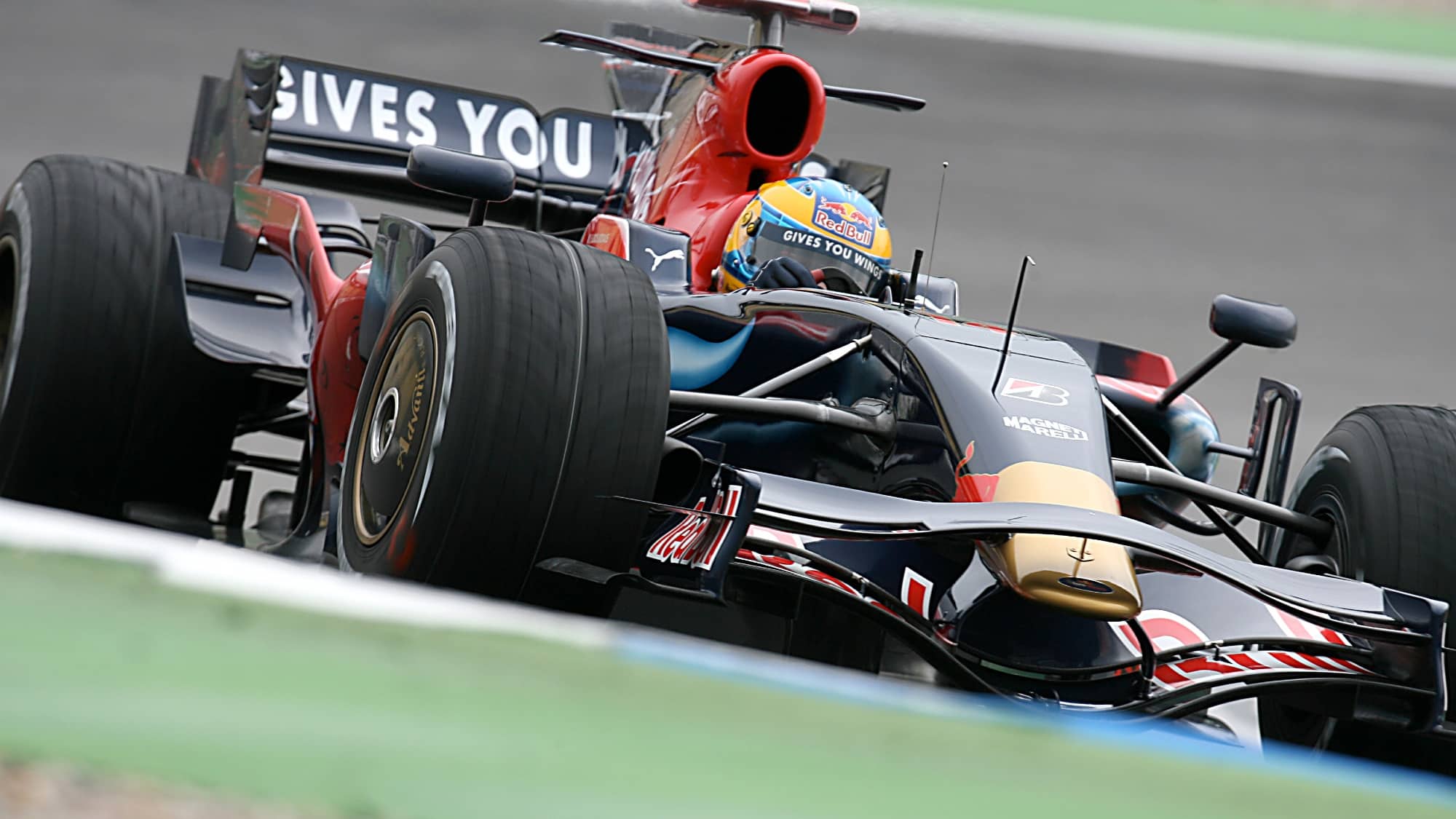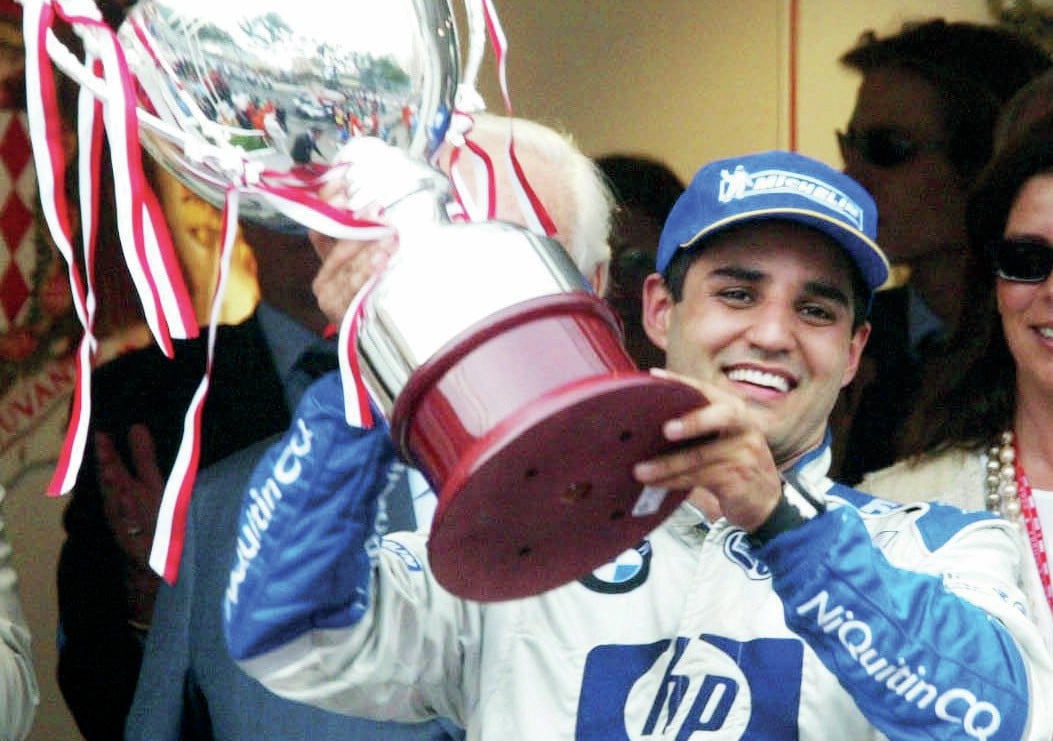The modern all-round racing greats: Masters of the many
Drivers of yesteryear enjoyed the freedom to race whatever, wherever, but in the more restrictive modern landscape multi-series competitors are a rare breed. That doesn’t mean great all-rounders no longer exist. Damien Smith and Gary Watkins chart 10 of the best
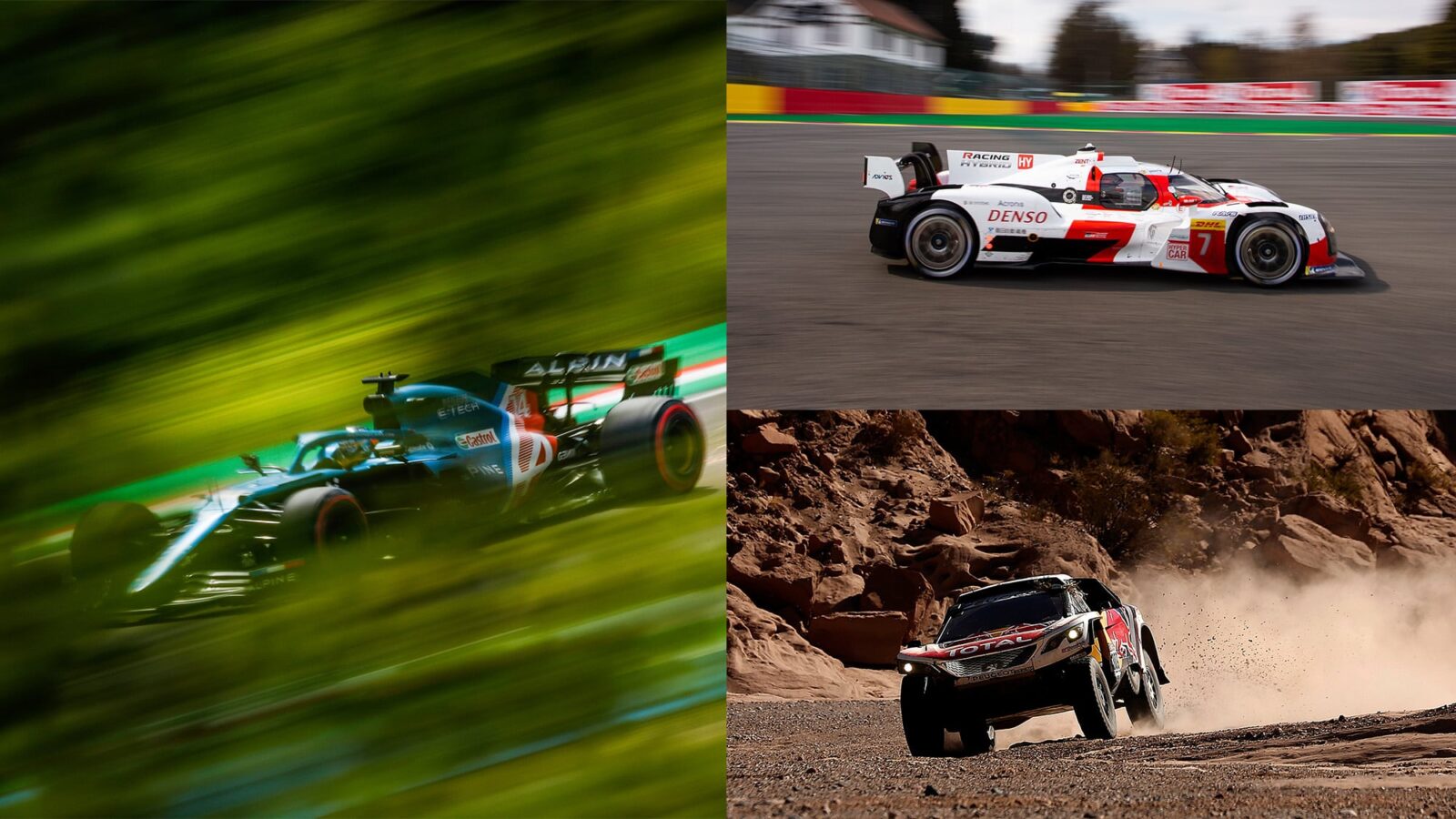
The days of drivers racing saloons, GTs and single-seaters all in one afternoon are the preserve of a few historic racing specialists today, but to dismiss the notion that all-rounders still thrive in the contemporary sport would be an oversight. Code switchers are still plentiful, whether they have popped out the other side of Formula 1 or bounced off its glass ceiling having only grazed the underside. When they widen their horizons, they often find new or greater fulfilment as they prolong or establish their place among the privileged few: to live the life of a paid professional racing driver. Lest we forget, you have to be special to earn money to race at any level and it’s this achievement by which racing drivers’ careers should perhaps be judged above and beyond whether they managed to scratch a handful of grand prix starts for a middling-at-best F1 team.
Motor Sport has long saluted the diversity of the greatest racing lives, from Sir Stirling Moss to Vic Elford, Graham Hill to Brian Redman and indeed, Jackie Stewart to Mario Andretti. Time then to doff our cap to those in the era of the specialist, who keep alive the fine tradition of the talented, versatile racing all-rounder.
Click on the link below each driver to view their Motor Sport Database career profile
10. José Maria López
Touring cars, LMP1/Hypercar
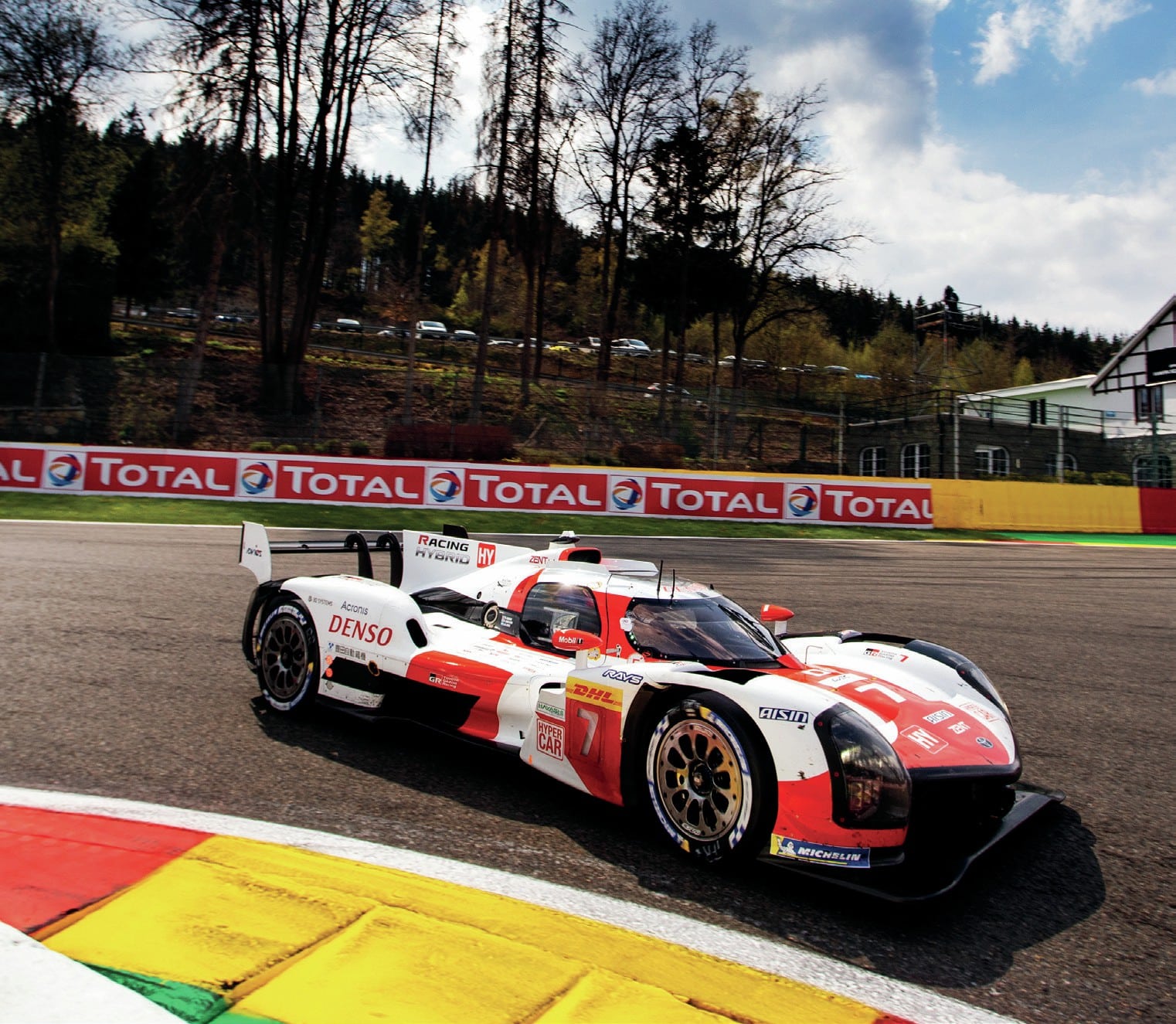
This season, López is sharing WEC driving duties of the Toyota GR010 Hybrid with Mike Conway and Kamui Kobayashi
Fernando Alonso beat José Maria López to the punch in becoming the first two-discipline FIA world champion on the circuits.
But when the Argentinian emulated his former Toyota team-mate by adding the World Endurance Championship crown in 2019/20 to his World Touring Car Championship hat-trick of 2014-16 with Citroën, his was arguably the bigger achievement.
His titles came in a production-based, front-wheeldrive tin-tops and then a four-wheel-drive jet fighter of a prototype. It would be wrong to say that López made a seamless transition between disciplines. There were mistakes in his maiden season in the WEC after he switched codes for 2017, but they were quickly banished from his repertoire and he became an important player in a line-up with Kamui Kobayashi and Mike Conway that could — and perhaps even should — have beaten Alonso, Sébastien Buemi and Kazuki Nakajima to the 2018/19 WEC crown. They most definitely were the moral winners of the second of the two editions of Le Mans incorporated into the so-called ‘superseason’.
9. Jean-Éric Vergne
F1, Formula E, LMP2
Fifty-eight F1 starts over three seasons for Toro Rosso represents a better F1 shot than most of his peers achieved. Should he have made more of it? Probably.
Was he also unlucky to drop off the F1 map?
Almost certainly. The 31-year-old Frenchman is a prime example of a driver who successfully re-invented himself and is now reaping the benefits. Formula E has proven a life-raft for such careers and Vergne has thrived on the series’ buoyancy. Only Lucas di Grassi has won more Formula E races. A consecutive two-time champion in 2017/18 and 2018/19, Vergne has also used LMP2 drives as a launchpad to what could be a sports car career: next year he’ll be a factory Peugeot Hypercar driver for its return to Le Mans and the WEC. He’s in his prime.
8. Sam Bird
Formula E, GT, LMP2
The finest of Britain’s new generation of racing all-rounders? We reckon so, based on his record in Formula E and prolific endurance racing experience first across LMP2, in which he helped carry G-Drive to a world title in 2015, and then as a core member of AF Corse’s Ferrari GTE squad. The 34-year-old is among those who bounced off that F1 glass ceiling, but saw the opportunity Formula E represented. He transferred to Jaguar this year and maintained his record for winning a race in each season of the EV series. If he lacks the Formula E title, Bird is renowned for his competitiveness. The former Mercedes F1 test driver still has time to land a plum drive in the new Hypercar era while leading Jaguar’s FE charge. He looks the part in Ferrari red.
7. René Rast
DTM, Formula E
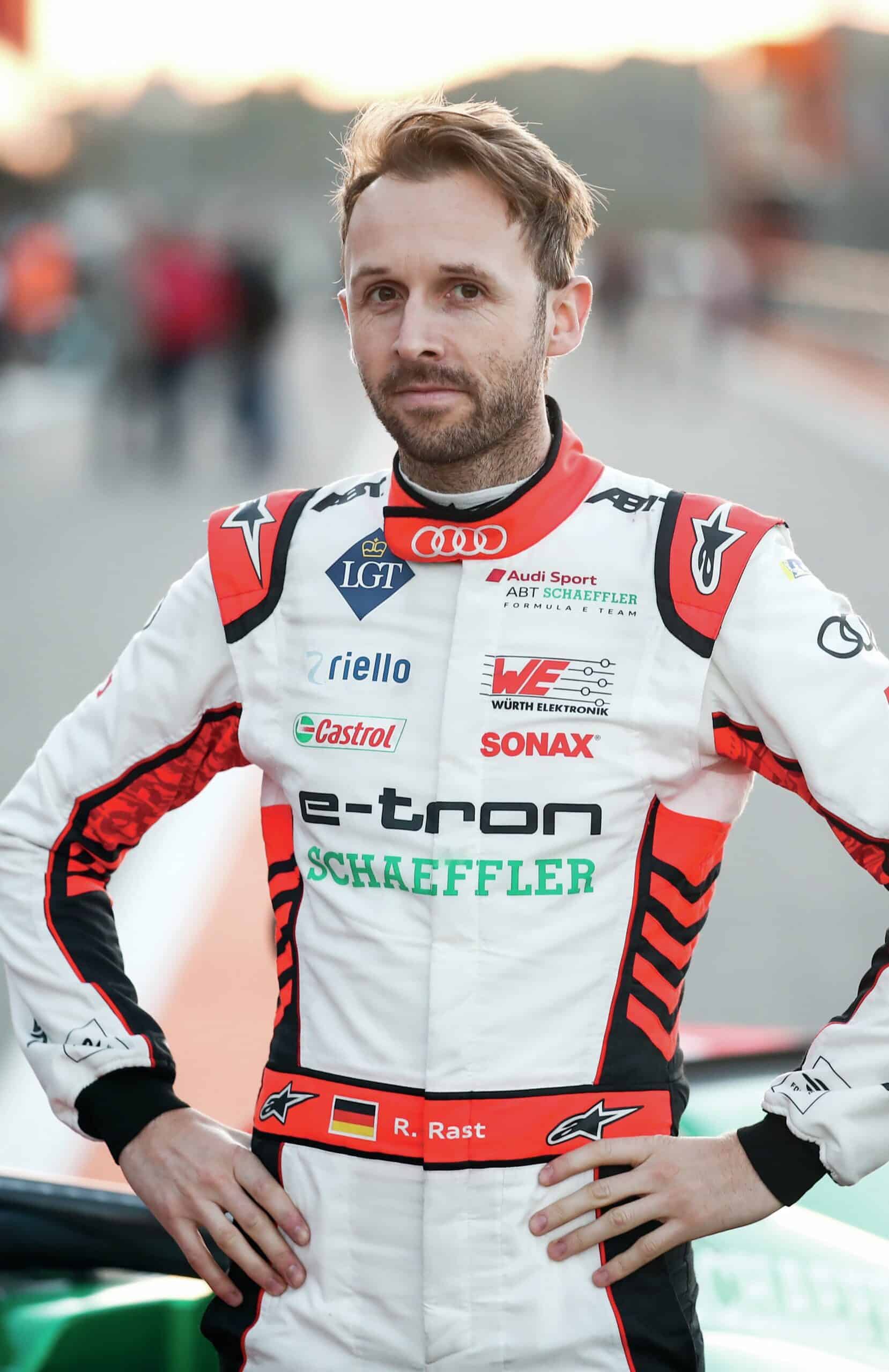
Versatile German René Rast has a long-standing association with Audi – which might stretch to Hypercars
To understand why Rast is considered among the best and most versatile modern allrounders, listen to what his Abt Audi team boss Allan McNish has to say of the new Formula E convert. “René is extremely analytical,” says the Scot. “He will sit there and look at his own performance to the nth detail. He looks at how he interacts with the car, not how the car interacts with him. Then he will adapt and mould.”
Rast’s three consecutive Porsche Supercup titles were the foundation of his fine GT career, but it was his transformation into the king of the DTM that cements his place on this list. Three consecutive titles in Europe’s highest-profile tin-top series has led him to a surprise single-seater switch and he’s already a Formula E podium finisher. With Audi withdrawing its works interest in the EV series, the 34-year-old might now have his eyes on the German giant’s return to Le Mans in 2023. Transferring his talents shouldn’t be a problem.
6. Romain Dumas
LMP1, GT, EV records, rallying
Dumas is one of those sports car pros who looks equally at home in a prototype as he does in a GT car. Or should that be vice versa? The Frenchman can swap seamlessly between the two. A month and a half after taking Le Mans victory (his first) aboard an Audi LMP1 in 2010, he notched up another 24-hour win at Spa (his second) driving a Porsche GT2.
Dumas has gone on to prove that versatility on rally stages and hillclimbs: he was the 2017 FIA R-GT Cup rally champion at the wheel of a self-entered Porsche 911 GT3 RS and remains the course record holder at the Pikes Peak hillclimb at the wheel of Volkswagen’s ID.R and on Goodwood’s hill too. The all-electric machine is based around a car Dumas developed himself for his initial attempts on the Colorado course that yielded a trio of victories. Dumas’ love of motor sport knows no bounds and he isn’t afraid to push the boat out as he seeks a new thrill.
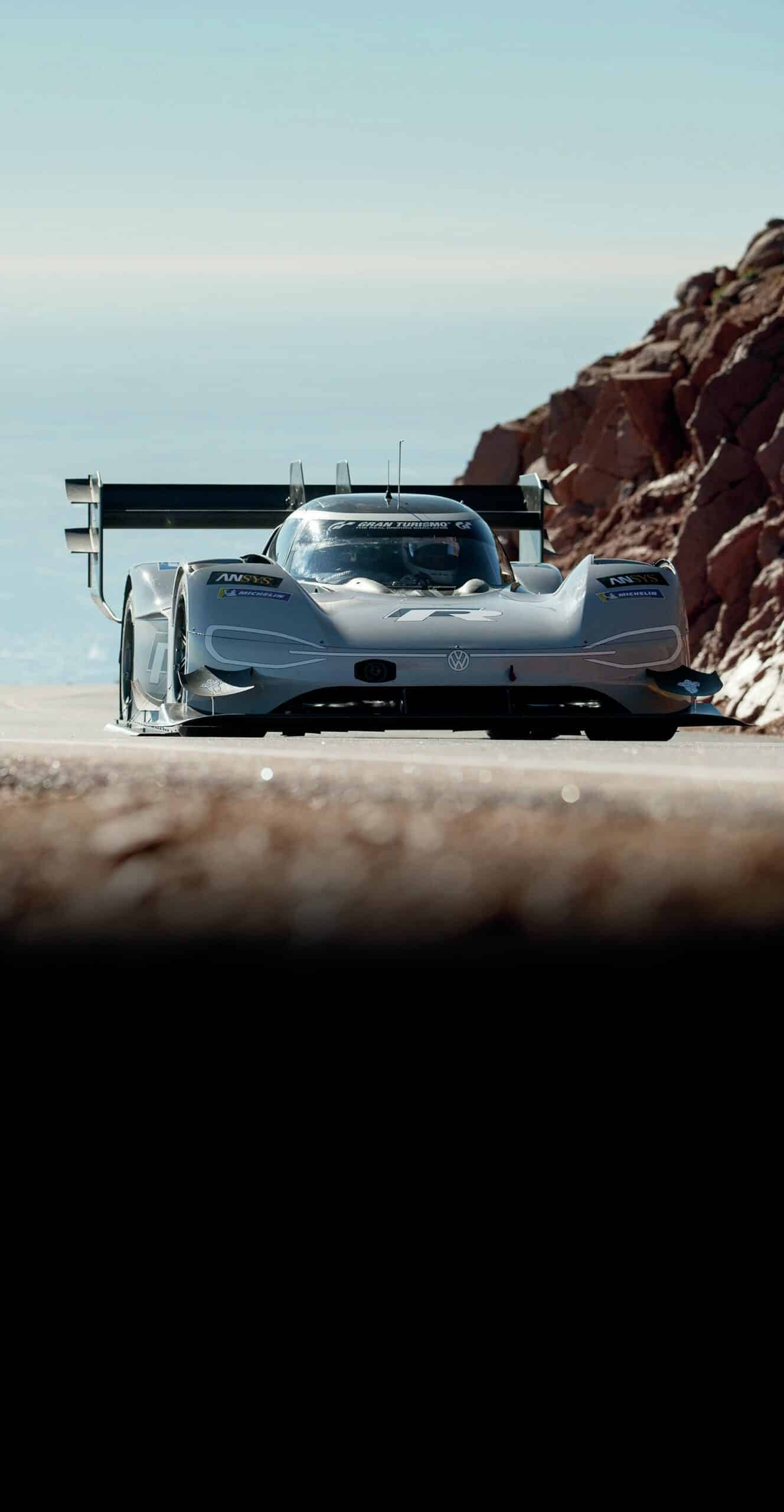
In a flawless run in 2018, Dumas became the first driver to reach the Pikes Peak clouds in less than 8min (7min 57.148sec)
5. André Lotterer
Super Formula, Super GT, LMP1, Formula E, F1
When André Lotterer was in his sports car pomp he spent the weekends off from his WEC commitments racking up victories at the wheel of single-seaters in Japan. He bolstered a CV that includes three Le Mans victories and a WEC title with 16 wins in Formula Nippon and then Super Formula during his years as an LMP1 racer with Audi and Porsche in 2010-17.
He won the title in 2011, too, and would have claimed another had he not been forced to miss two events and three races in ’13. If there were any doubts over his versatility, he proved it when he got a late call to make his F1 debut with Caterham at Spa in 2014 and outqualified team regular Marcus Ericsson by a second.
A new chapter of the German’s career in Formula E has yielded multiple podiums.
4. Sébastien Bourdais
IndyCar, IMSA, LMP1, F1, GT, Australian V8s
Underachievement when he made it to F1 with Toro Rosso in 2008 shouldn’t detract from Bourdais’ credentials. The Frenchman has dovetailed his exploits in North American single-seaters with a successful sports car career aboard a range of machinery. To his name he has a pair of outright victories in the Daytona 24 Hours and one each in the Sebring 12 Hours and Spa’s twice-around-the-clock classic. He finally got to stand atop the podium at Le Mans in GTE Pro in 2016 with the Ganassi Ford squad, having had to look up to the winners from the second step in three of his four attempts at overall victory with Peugeot.
To prove his versatility, he’s twice triumphed on one of the Aussie V8 Supercar enduros on the Surfers Paradise Street Circuit.
3. Juan Pablo Montoya
F1, NASCAR, IndyCar, IMSA, LMP2
Belligerent to the point of arrogance, Montoya is the most soulful driver of the past 25 years. When F1 kept him waiting he conquered CART and the Indy 500. Then, when he finally landed the Williams job he deserved in 2001, Montoya shot down the inside of Schumacher at Interlagos – and blew the roof off F1. If only he’d stuck around longer.
The NASCAR years were a contradiction, on one hand wasting what he had to offer and on the other enhancing his devil-may-care legend. That he also proved adept in US sports car racing, winning the Daytona 24 Hours with Chip Ganassi Racing three times and becoming IMSA champion with Penske as recently as 2019, should never be overlooked. Then there was that second Indy 500 win, 15 years after the first. How can you not love him?
2. Sébastien Loeb
WRC, LMP1, touring cars, GT
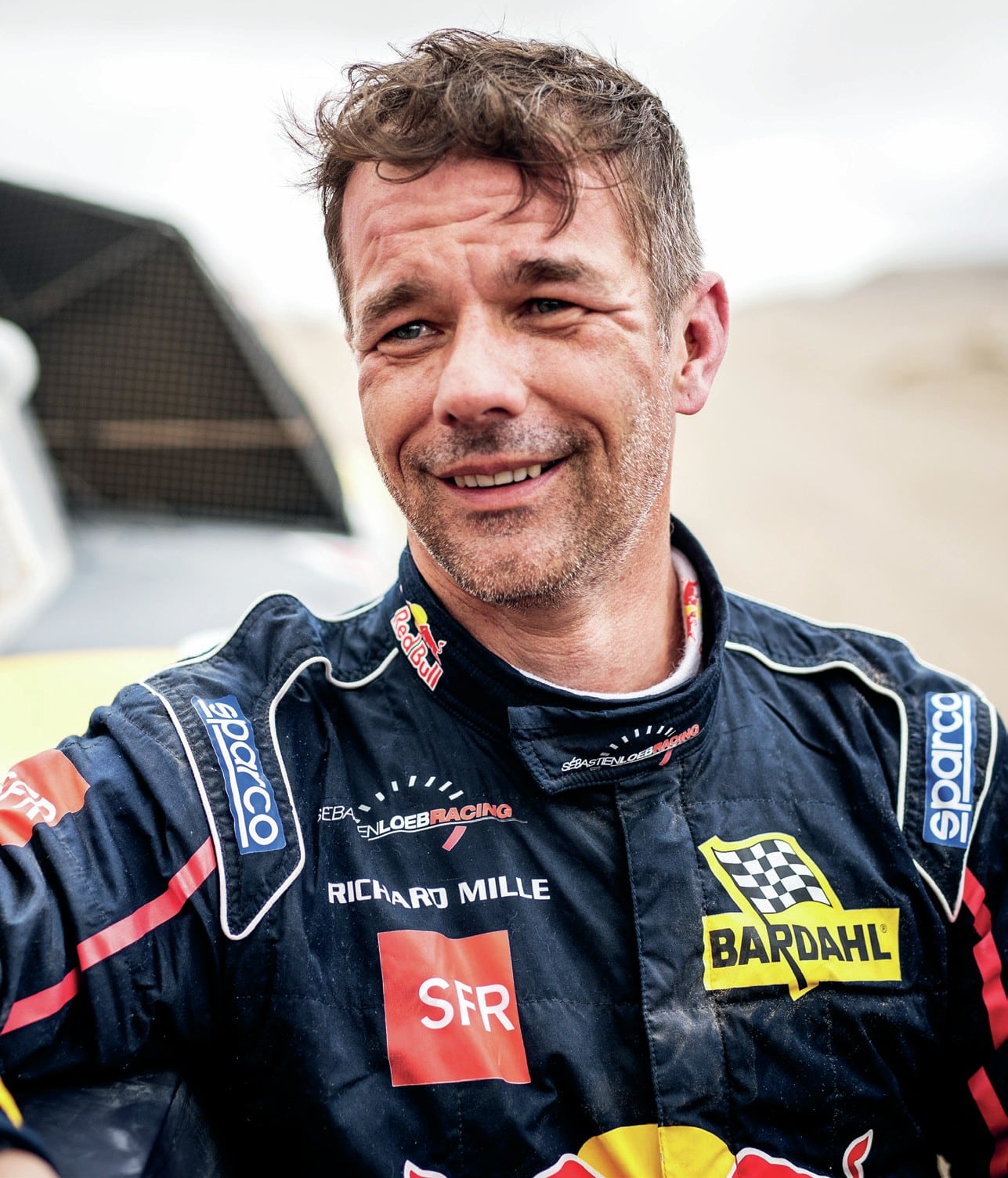
Old-school French insouciance and multisurface success means a podium position for Loeb
The greatest rally driver in history, Loeb was a shoo-in to figure high on this list. But why isn’t he No1? After all, beyond his astonishing run of nine consecutive WRC titles and record 79 wins, he finished second at Le Mans for Pescarolo in 2006, won FIA GT races in a McLaren GT3, proved his tin-top chops in Citroën’s dominant World Touring Car Championship campaigns, held his own in World Rallycross, is a 14-time Dakar Rally stage winner and races on today in Lewis Hamilton’s Extreme E team – while still not being able to leave the WRC alone at the age of 47. He even tested a Toro Rosso capably enough for an F1 cameo to briefly become a consideration.
By the time he broke through, top rally drivers had long since shed their tendencies to specialise either on the loose or the hard stuff to have the capability to deliver on any surface, but Loeb took that versatility to new levels. Few could live with him, whatever was under his wheels. It also doesn’t hurt that Loeb exudes a natural charisma hewn from a solid core of steel that would have made him a perfect fit in any discipline from any previous era. He’s a hero the like of which we might never see again. But he’s not our No1…
1. Fernando Alonso
F1, IMSA, LMP1, Dakar, IndyCar
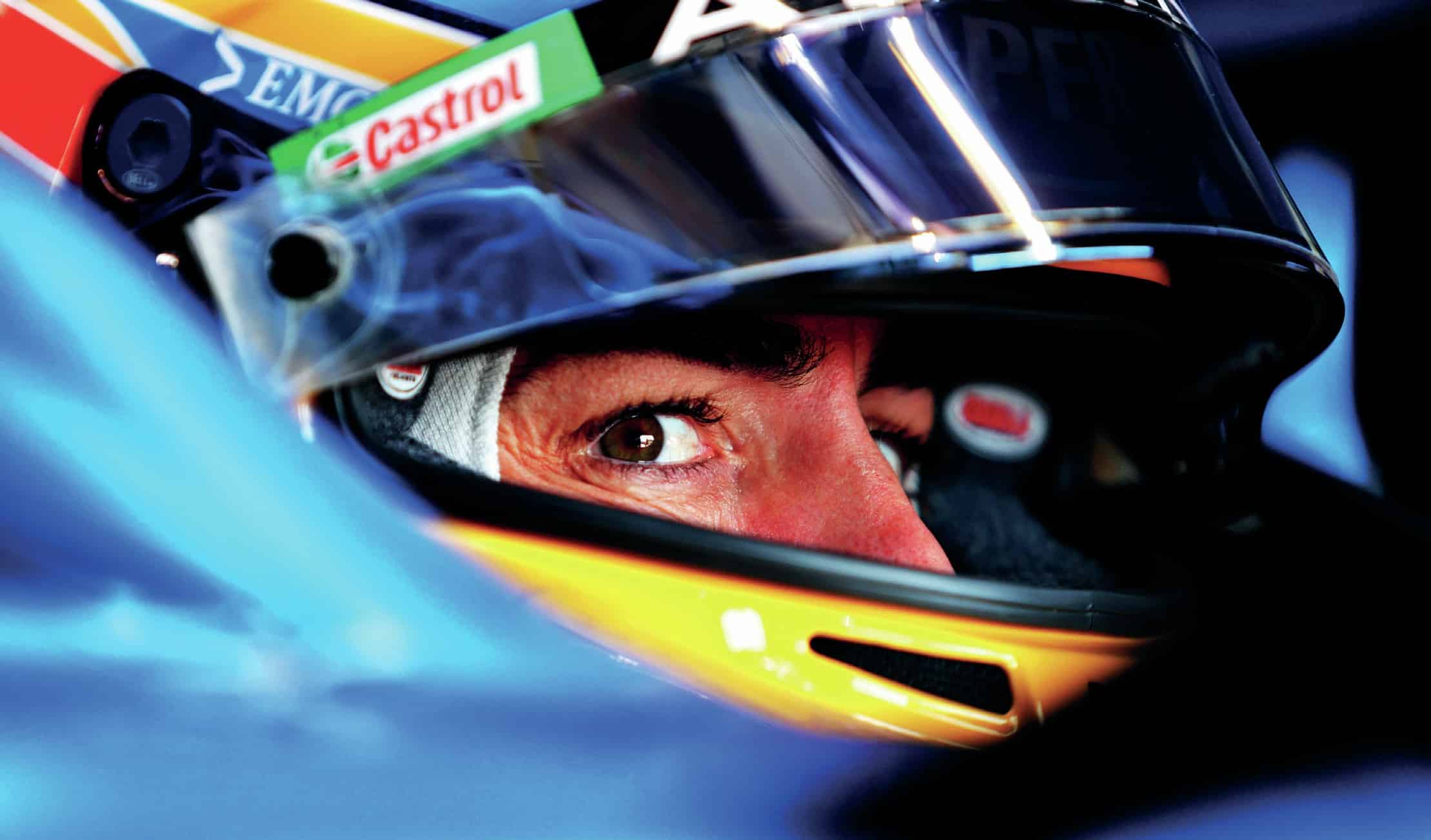
Eye on the prize: 20 years after his debut, Alonso is back in F1 after a two-year hiatus. Eighth in Portugal has been his best result this season
Fernando Alonso knows, like the rest of us, that 32 GP wins and two world titles is unrepresentative of his undoubted talents. As he edged towards 40, he realised he wasn’t going to be breaking any F1 records, so he set out to leave his mark on our sport in a different way. He wanted to become known as one of the great all-rounders, and high on his to-do list was completing the unofficial triple crown of motor sport by adding victory in the Le Mans 24 Hours and the Indy 500 to his 2006 Monaco Grand Prix triumph.
The Spaniard only just fell short of emulating Graham Hill during a three-and-bit year adventure that began during his time with McLaren. Alonso won the Le Mans 24 Hours twice with Toyota in 2018 and ’19 and added a third world title to his CV in the WEC with the Japanese marque. In doing so, he became the first driver to win FIA world crowns on the circuits across different codes
He also won the Daytona 24 Hours in 2019 in what was surely his greatest performance at the wheel of a sports car, and at Indy he was in the hunt for a win on his debut in 2017 before Honda let him down once again. There was an off-road foray, too, in last year’s Dakar Rally, once more with Toyota.
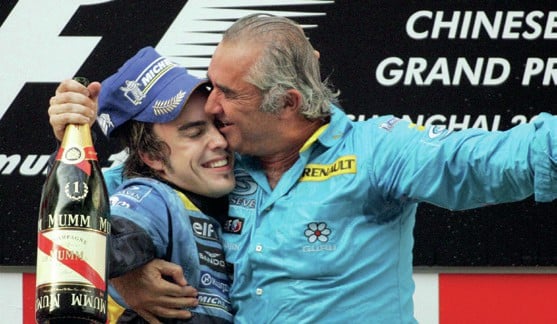
Alonso and Briatore celebrate another race win
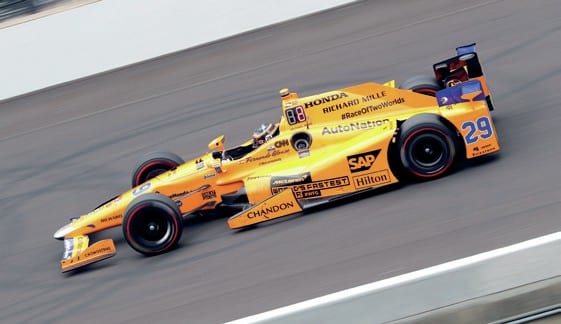
McLaren orange, Indy 500, 2017;
Alonso brought his full armoury to the table in each of the disciplines he tackled. At one end there was a typical diligence of preparation, at the other an opportunism out on track. The way he used every inch of asphalt available to him in the early restarts from behind the safety car during his maiden Le Mans was breathtaking.
It would be simplistic to say that Alonso made the difference in the winning Toyota’s comeback from an early delay that year, but he did set it in motion. He clawed back more than half of the two-minute deficit to the sister car during a quadruple stint in the small hours on Sunday morning. Yet Alonso was almost certainly the deciding factor when he triumphed at Daytona in 2019 with the Wayne Taylor Racing Cadillac squad.
There were times when he was spellbinding in the heavy rain that ultimately brought an early halt to proceedings.
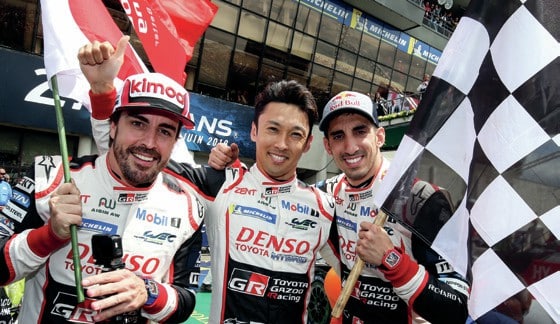
Le Mans win, 2019
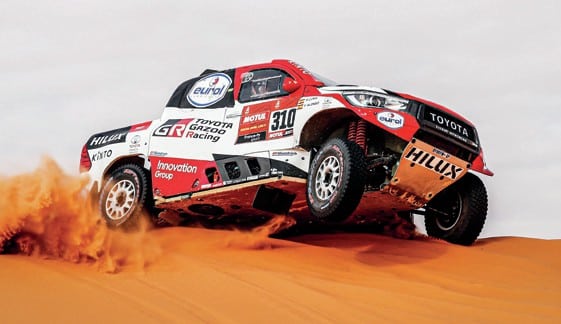
Flaming dunes – Dakar Rally, 2020
It wasn’t his first starring performance on US soil. His Indy debut 18 months before aboard an Andretti Autosport-run car liveried in McLaren orange was nothing short of phenomenal. He qualified in the middle of the second row, led 27 laps and was in the hunt when the Honda engine in the back of his Dallara cried enough. There was no repeat of that form on his subsequent appearances at the Brickyard, a nonqualification in 2019 included.
Alonso’s efforts to win at Indy are on hold for now after his return to F1 with Alpine, but he went a long way to securing the legacy he craves. His achievements to Motor Sport’s mind make him the greatest all-rounder of the current era.
Honourable mentions
Sébastien Buemi
Jettisoned out of F1, but has thrived with a dual career: Formula E champion in 2015/16 and a lynchpin of Toyota’s endurance racing campaigns, becoming a two-time WEC champion and three-time Le Mans winner.
Jenson Button
After nearly 20 years of F1, has dived into the wider racing world: Super GT champion in 2019, a Le Mans start, GTs, adventure on the Baja 1000 and now a team owner/driver in Extreme E.
Nicky Catsburg
A tin-top race winner in WTCC and WTCR and a GT specialist. Won Spa 24 Hours in 2015, the Nürburgring 24
Hours last year and this year scored a Daytona 24 Hours class win in a Corvette C8 R.
Emmanuel Collard
Now 50, has notched up 24 Le Mans starts in a wide assortment of GTs and prototypes – and still a contender today, winning the GTE Am WEC title last year.
António Félix da Costa
Once a highly-rated Red Bull junior, missed F1 but became a DTM race winner and is now the Formula E champion and an LMP2 frontrunner.
Scott Dixon
Six-time IndyCar champion with Chip Ganassi, with whom he scored two overall Daytona 24 Hours wins and a class victory in its Ford GT. Added a third Daytona win last year in Wayne Taylor Racing’s Cadillac.
Mattias Ekström
A Swedish Touring Car champion and double DTM champion, Ekström switched to rallycross, becoming world champion in 2016. Now racing in Extreme E.
Robin Frijns
Race winner in Formula E with Envision Virgin. GT CV includes a Bathurst 12 Hours win, finished third for Audi in DTM last year and this year combines Formula E with a WEC LMP2 drive for WRT.
Nico Hülkenberg
Makes this list for his cameo at Le Mans for Porsche in 2015 while he was still a Force India F1 driver. That hadn’t happened since Johnny Herbert won at Le Mans in 1991, a week after racing in the Mexican GP.
Robert Kubica
Suffered terrible hand and arm injuries while rallying in 2011 during his F1 career. Since, has won a WRC2 title, made a remarkable F1 return with Williams, has also raced in the DTM and is now an ELMS race winner in LMP2.
Alex Lynn
Races for Mahindra in Formula E, also due to appear for United Autosports in LMP2 at Le Mans this August. Won the GTE Pro class at Le Mans last year with Aston Martin.
Scott McLaughlin
Kiwi sensation who is a consecutive three-time Australian V8 Supercars champion and Bathurst winner with Penske, which has now switched him to a full-time assault on IndyCars.
Simon Pagenaud
American Le Mans Series champion in 2010, second at Le Mans for Peugeot, then an Indy 500 and IndyCar champion for Penske.
Kimi Räikkönen
A nod for his two seasons in WRC and NASCAR flirtation mid F1 career in 2010-11.
Stéphane Sarrazin
He made one GP start, rallied extensively and raced for Peugeot at Le Mans. Still going at 45 in Extreme E.
Alexander Sims
Lynn’s team-mate in Formula E. Also continues to race GTs for Corvette in IMSA and has wins in both the Spa and Nürburgring 24 Hours.
Petter Solberg
The 2003 WRC champion proved a hit when he switched to rallycross, becoming a two-time world champion in 2014 and ’15.
Harry Tincknell
Combines racing for Mazda in IMSA and in TF Sport’s LMP2 squad in the ELMS. Has two Le Mans class wins.
Stoffel Vandoorne
Has diversified since being dropped by McLaren in F1. Now a Formula E frontrunner with Mercedes EQ and also racing in the WEC in LMP2 with Jota Sport.
Nyck de Vries
The 2019 F2 champion is team-mate to Vandoorne in Formula E and races in the ELMS for G-Drive in LMP2.
